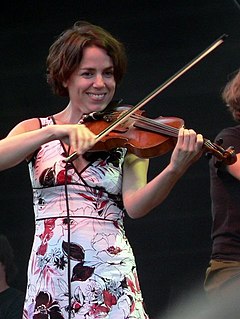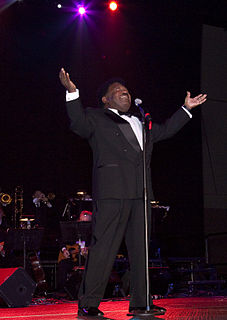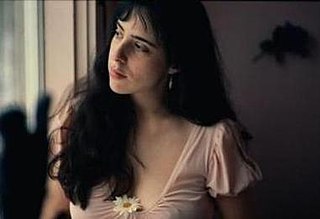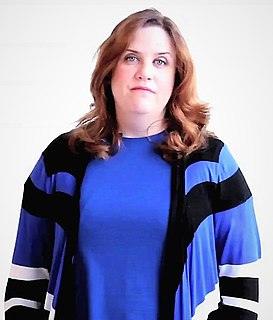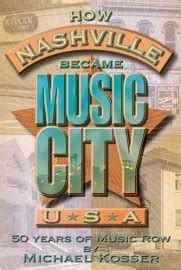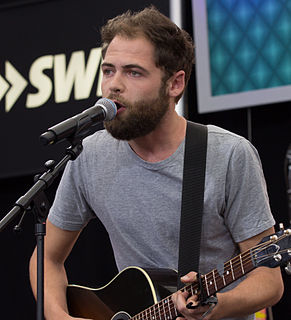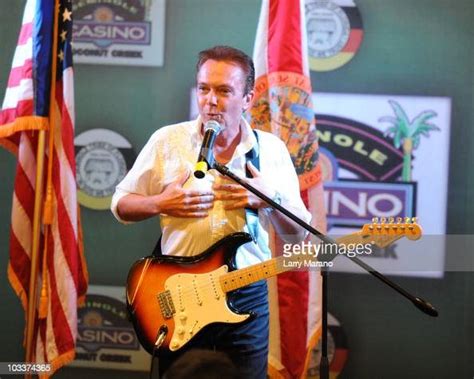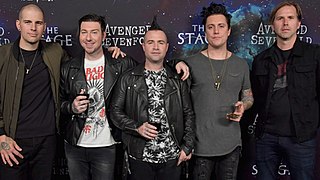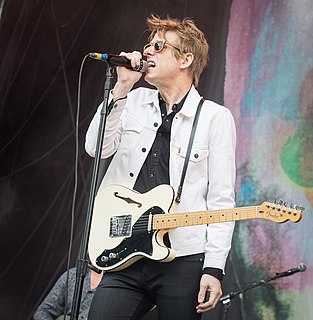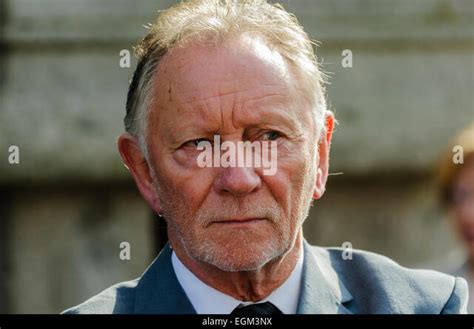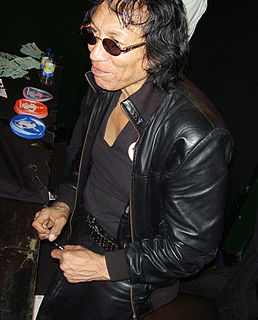A Quote by Petra Haden
Eventually I had so many little melodies and ideas that, you know, that they were all songs to me and I threw in a few cover songs like Enya's "Watermark," Bach, and my dad's song, "Song for the Whales."
Related Quotes
'Cover Me.' 'Take Time To Know Her.' 'Warm and Tender Love.' 'Out Of Left Field.' 'Dark End Of The Street.' 'Tears Me Up.' 'My Special Prayer.' All points back to one song. 'When A Man Loves A Woman.' The Grand-daddy to all of my songs. The boss of all of my songs. I have great respect for that song. Always will.
There are no limitations with a song. To me a song is a little piece of art. It can be whatever you like it to be. You can write the simplest song, and that's lovely, or you can just write a song that is abstract art. ... A lot of my songs are very serious, I'm like dead serious about certain things and I feel that I'm writing about the world, through my own eyes. ... I have a love for simple basic song structure, although sometimes you'd never know it. ... Most of the songs I wrote at night. I would just wake in the middle of the night. That's when I found the space to write.
Often for me, if I hear a song I know, it clicks for me and I hear it in a different way and I think, "I could sing that song. I've got something to say about that song. Wanting to connect with an audience and wanting them to rethink songs; it is actually important to do songs they're familiar with. Also, I love those songs. In a way, I think I've changed people's perceptions of what a cabaret show like this could be.
An audience will let you know if a song communicates. If you see them kind of falling asleep during the song, or if they clap at the end of a song, then they're telling you something about the song. But you can have a good song that doesn't communicate. Perhaps that isn't a song that you can sing to people; perhaps that's a song that you sing to yourself. And some songs are maybe for a small audience, and some songs are for a wide audience. But the audience will let you know pretty quickly.
Here's some free advice; like the folkies of yore, you need to be not just a writer of songs, you need to be a lover of songs, a listener of songs and a collector of songs. If you hear a song in a club that knocks you out or you hear an old recording of a great song you never knew existed, it does not diminish you to record it; it actually exalts you because you have brought a great song from obscurity to the ear of the public.
Besides my fast and slooow songs, I further divide my work into three main song types: the ballad or story song, the variation on a theme (saying the same thing over and over and over again) song, and the weird song. It's important to have weird songs, but I find that a little weirdness goes a long way.
We didn't say, 'Hey, we're gonna pick a bunch of cover songs,' or, 'We're gonna write an original song that has to sound like this, because we're a metal band, so we're gonna cover some metal songs.' We did the opposite. We just said, 'We're gonna have fun with these songs, and we're gonna try different things.'
It was a matter of not seeing the woods for the trees. Glorious songs have been in Ireland forever, but a lot of these were so popular they were sung only by drunken men at weddings. They didn't have any regard for the song at all. So, I picked out 14 songs that I had grown up with, songs with great melodies. After 35 years as a songwriter, I appreciate the value of a good melody because I know how hard it is to write one. So I presented them in a new way, with piano, keyboards, strings, and a contemporary rhythm section. I just treated the melody with a bit of dignity and a bit of style.
Taylor was named after James Taylor and claims that she knows all the James Taylor songs, and I'm a huge fan of James Taylor and know all his songs, too. My dad told me that if I ever met Taylor Swift, I had to tell her that I know every James Taylor song. We started naming albums, and we were both shouting them out.
I think from a major-label perspective, if you were on the flip side of things and that's the world you were used to working in, your interpretation could be, "Oh, they're having trouble writing songs," when really it's like, "No, I'm not ready to write songs, I don't want to write a song right now, if I did write a song, it would be forced."
